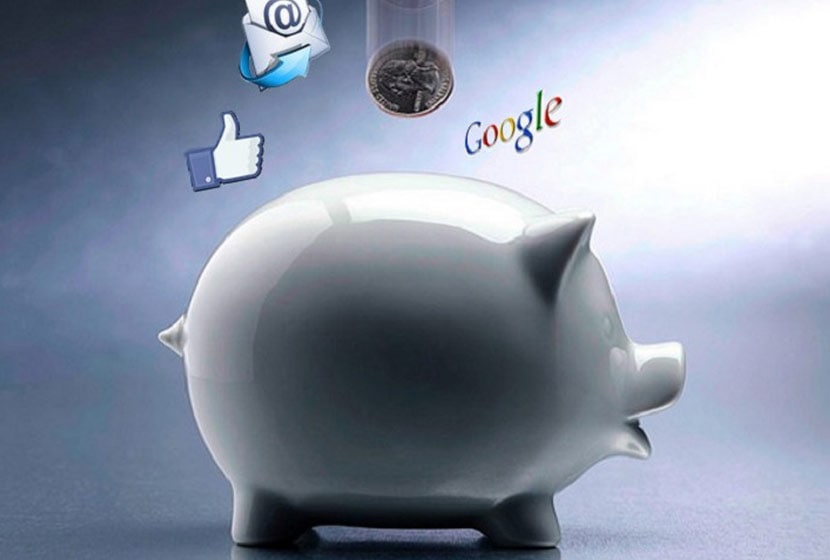Possessing the data and being able to monetize it: this is certainly the key success factor for tomorrow's champions, the one that will enable them to innovate and create new business models. What are the most promising initiatives and sectors? What are the challenges and obstacles to their implementation? A look back at the last edition of the Business Analytics Info Club on September 24th.
 This round table brought together Ludovic LEVY, Vice President Data Monetization, Orange; Matthieu SOULE, Strategic Analyst, L'Atelier BNP Paribas; Olivier LALLEMENT, Senior Manager, Deloitte and Mouloud DEY, Director Solutions and Emerging Markets, SAS France, and was moderated by Thomas Boullonnois from Rumeur Publique.
This round table brought together Ludovic LEVY, Vice President Data Monetization, Orange; Matthieu SOULE, Strategic Analyst, L'Atelier BNP Paribas; Olivier LALLEMENT, Senior Manager, Deloitte and Mouloud DEY, Director Solutions and Emerging Markets, SAS France, and was moderated by Thomas Boullonnois from Rumeur Publique.
Report of the round table
From Amazon to Orange, via the SNCF and a multitude of start-ups, more and more companies have realised that better use of data opens up new prospects for them: either by creating products or services, or by marketing their business information, thus integrating a new economic and industrial logic of co-creation.
Beyond a few examples in the media (Google, Facebook,...), where are we in terms of data enhancement?
What are the key initiatives, the most promising areas of application and the companies best positioned to take advantage of them?
How far can we go in monetizing data?
What are the ethical risks and limits of acceptability for customers in the use of their personal data?
After a quick round table introduction of the speakers, the experts of the Business Analytics Info Club gave a definition exercise: what is meant by "monetizing data"? What data are we talking about? The ones we talk about the most: personal data? or company data, public data,...?
Ludovic Levy, in charge of monetizing Orange's operator data with local authorities and companies, explains that the data monetized by the French incumbent operator fall into two categories: on the one hand, anonymous statistics (with no possibility of reversibility) consolidated from the traces left by mobile customers, excluding personal data; and on the other hand, pseudonymous individual data (i.e. reversibly anonymized) from services co-created with Orange partners.
According to Matthieu Soule of Atelier BNP-Paribas, companies have traditionally sought to use data solely for internal purposes, generally with a view to improving the services provided. The irruption of the web in all aspects of daily and professional life has changed everything, as companies have become aware of the benefits offered by cross-referencing their own data with external information. The questions to be asked are: how can this data be used outside the company? What is the value provided by the company? What are the new types of data that can be captured?
Olivier Lallement from Deloitte insisted on the evolution of uses and on all the issues related to the use of data, in particular the societal transformations and the evolutions that they can cause in companies. In this sense, he prefers to talk about data valuation, rather than monetization, since it is the manipulation and cross-referencing of these data - that is to say the meaning we give them - that allows us to create value. In other words, value is not created on the data as such, but on their exploitation, consolidation, cross-referencing and analysis. Especially since these analyses make it possible to create and offer new services or improve existing services.
It is therefore all the information relating to the user's use that will be of interest to the company: his ecosystem, his environment, the way he interacts with the services offered, his geographical position, etc., in short, all the elements that will qualify his behaviour. The consolidation of millions of pieces of information on user behavior will help define a set of profiles to improve the targeting of the company's offers. The added value lies in the ability to aggregate this information that qualifies behaviors, needs, fears... and to cross-reference it with external data, in order to propose new services or optimize existing services. It is therefore the notion of service that brings value and leads to the transformation of business models.
Mouloud Dey explains how SAS assists its customers in creating value with its software solutions, mainly with the aim of optimising business processes - fraud, cost reduction, etc. The purpose of the data collected is to create different business models or new business lines, while leveraging the huge investments made to collect the data. Companies are asking themselves how, beyond the issue of cost, how to create value and justify new business models? Data as such is never accounted for. So when it comes to value, the valuation of investments, considered by many companies as a cost, is an essential element.
 In order to concretely address the challenges and prospects related to data enhancement, what are the most promising examples and sectors?
In order to concretely address the challenges and prospects related to data enhancement, what are the most promising examples and sectors?
Ludovic Levy presents Vision Flux launched by Orange a year ago, making it possible to measure and qualify everything that happens in a catchment area (presence or mobility data): how many people pass through this area at any given time, the duration of presence, the frequency of passages, all segmented by type of profile (age, gender, CSP, or even later, purchasing behaviour, via cross-referencing and enrichment). The Retail sector is naturally targeted by this type of offer, as are the manufacturing of products and services, banking, and local authorities (tourism and transport).
Matthieu Soule considers that all sectors will be impacted by big data in the more or less long term. Last year, Atelier BNP Paribas carried out a study for the Forum d'AvignonNetflix, a specialist in video-on-demand (50 million users worldwide), takes advantage of a recommendation engine that generates 75% of traffic on the site. TripAdvisor (300 million visitors to the site), in the tourism sector, goes even further: you can choose your hotel directly based on the recommendations, which contributes to the creation of a new value chain. Disney amusement parks offer new services that take advantage of data collected via wifi terminals and sensors. For example, Disney offers in its Florida park (120 million visitors per year) MyMagic+A connected wristband that replaces the hotel room key, replaces the entrance ticket, allows you to pay for food and drinks, gives access to attractions, etc. On the one hand, this allows visitors to gain in comfort (no more need to carry around the room key and wallet), while at the same time collecting a huge amount of data to optimize the flow of visits and better understand the behavior of each visitor, in real time.
Olivier Lallement participates in the program Tech Trends from Deloitte that looks at the new IT trends that are transforming businesses. The latest edition highlighted three interesting trends: cognitive analysis and learning machines (anticipating, predicting and improving decision making); wearable and Internet of Things (elements that capture or transmit information to the user); and Digital allowing for a more personalized customer experience and greater user comfort. These three trends are fully in line with the big data and data enhancement model. We are moving from "big data" to "smart data" by being able to collect information, for example through connected objects, and to aggregate and consolidate data in a kind of digital hub, to capture all user information and analyze it via predictive analysis functions and statistical models. At the end of the chain, the company must return the knowledge obtained to the user, to bring him a certain comfort, or even through new services to encourage him to interact again with the company in order to recreate new information that will feed the whole process.
New players or traditional players are thus able to invent new services or business models and participate in this information value chain. For example, smartphone manufacturers have evolved their business model to become both data aggregators (health, home automation) and offer the user the digital interface that will be used to both retrieve and enter information.
Among the sectors most concerned today are health (with connections to the insurance world), transport, energy and home automation, which benefit in particular from smart grids.
 Ludovic Levy takes up the theme of the Internet of Things again, explaining that Orange, as part of the The new industrial France led by Anne Lauvergeon, is piloting a project aimed at creating a technological platform and an ecosystem of connected objects. The aim is to collect and then aggregate data from connected objects on the one hand, and from different enterprise data sources on the other. The program aims to better understand customer journeys, optimize processes and create new services.
Ludovic Levy takes up the theme of the Internet of Things again, explaining that Orange, as part of the The new industrial France led by Anne Lauvergeon, is piloting a project aimed at creating a technological platform and an ecosystem of connected objects. The aim is to collect and then aggregate data from connected objects on the one hand, and from different enterprise data sources on the other. The program aims to better understand customer journeys, optimize processes and create new services.
The trend today is to connect all everyday objects, coffee maker, weather station, refrigerator, etc., to the Internet. Manufacturers are gradually integrating sensors into all these objects by default, in order to gain a better understanding of user usage and customer itineraries. In this project, private individuals also benefit from the system, by having the means to manage their personal data themselves: securing and controlling them (who can use them? and the right to forget).
Mouloud Dey goes on to explain that Gartner estimates that by 2016, 30% of the world's companies will be commercializing their data. In practice, we can see today that certain sectors are at the forefront, where the consumer is concerned: retail, telecom, finance. Manufacturers are also at the forefront, such as Airbus, for example, which is conducting an experiment to equip its aircraft with thousands of sensors to collect data during each flight and offer innovative services to airlines based on this data.
Catalina consolidates the sales receipts of a large number of retailers to resell value-added information from which they have learned a great deal; telecommunications: in the UK, the three major operators have joined forces to create Weve, a joint venture in m-commerce (m for mobile) that uses their data to create new services, particularly for banking and retail, on an opt-in basis. In Belgium, based on the freemium model and free wifi terminals, Zapfi studies and characterises the behaviour of buyers to help brands develop personalised offers.
Matthieu Soule completes by talking about the volume effect. We often talk about the American GAFAs (Google, Apple, Facebook and Amazon), but less about the Chinese players, such as Alibaba or Tencent, which have nevertheless reached the critical size to conquer new sectors (hundreds of millions of active users) on the basis of data analysis. This is called the theory of contestable markets. These players are moving out of their original business to offer new value to their user base in a sort of virtuous circle: the more data they collect, the more they are able to create new services that will appeal to more customers and the more they will be able to target new markets. For example, General Electric, whose original business was aircraft engine manufacturing, has teamed up with Amazon Web Services and Accenture to offer an engine manufacturing financing system based on data analysis.
Beyond the buzz around connected watches, it is clear that there are huge industrial stakes around the Internet of Things that require a critical size to exploit them.
In France and Europe, are companies ready to face these challenges?
Ludovic Levy considers that Orange, which initiated internal transformation programs around the data a year and a half ago, is in working order. The first challenge is IT: we need to break down the silos of data to facilitate cross-referencing and analysis, and obtain knowledge that is useful for the company's development. The second is organizational: the creation of the position of Chief Data & Customer Strategy Officer reflects the fact that data is at the heart of Orange's customer strategy. His role is to act as a link between IT and business, supported by a team of IT, business and marketing specialists and statisticians. In addition, Orange has set up data governance, i.e. "golden rules" governing both data access and processing, which give employees autonomy and confidence.
Concerning the culture of data and analytics in companies, Mouloud Dey explained that if one of the important points is indeed to break the silos in the company and share data with partners, or even competitors (example of Weve) to enhance these data, it is also essential to know the three types of data potentially exploitable: observed" data, i.e. data stored in the information system, contributory data (provided by users) and data "deduced" from all the information, through the use of sophisticated algorithms. Their exploitation implies the use of software solutions implementing analytical algorithms that make it possible to give meaning to sets of data that are difficult to grasp at a glance. This also implies the development of an analytical culture in the company, which requires organizational efforts affecting all the company's departments, the recruitment of specialized skills, and a specific organization, led by a Chief Data Officer. All this constitutes an emerging business model, centered on data and the use of analytical solutions.
Olivier Lallement confirms that a new type of data-centric company is emerging, the result of in-depth reflection on how to organize or reorganize oneself to deal with these issues. These reflections never focus on IT or technological aspects: solutions exist and have been tried and tested, and CIOs not only know how to integrate them into the IS, but also how to make them available to employees. The main problem lies in the availability of specialist skills in analytics, the famous Data Scientist who must be able to make the link between business needs and available data, and to imagine the algorithms and predictive models that enable big data to be transformed into smart data. In terms of organization, the company must be able to think transversally, to define rules for data exchange and exploitation (the famous governance or "Do's and Don'ts") and to put data at the center of the organization. Finally, it must pay particular attention to the quality of the data it uses, in conjunction with the business users, each of whom has different needs and uses.
 Matthieu Soule stressed that there is also a problem of ambition and business strategy. Big data was initially used to improve the quality of service of large operators such as Google and Yahoo! While Yahoo! was created to reference the best sites based on manual searches, Google has changed the paradigm by automating searches using computers and algorithms. Searches first target sites, then pages, then words on each page.
Matthieu Soule stressed that there is also a problem of ambition and business strategy. Big data was initially used to improve the quality of service of large operators such as Google and Yahoo! While Yahoo! was created to reference the best sites based on manual searches, Google has changed the paradigm by automating searches using computers and algorithms. Searches first target sites, then pages, then words on each page.
To deal with this change of scale, IT played a decisive role, but the aim was above all to improve user satisfaction. Similarly, Amazon initially created formal protocols for the exchange of information between its own services, in the form of APIs, which it extended to the exchange of data with external partners. This led to the creation of the marketplace we know today. In short, IT is at the service of the company's strategy and ambitions, but above all to solve business problems related to the provision of services. The appointment of Henri Verdier as Chief Data Officer of the French State is a good illustration of this transformation, which even affects governments (e-administration), as they have to reinvent themselves as service providers to citizens and businesses, and therefore rethink their organisation around these new ambitions.
Social acceptability, personal data, regulatory constraints...
Matthieu Soule participated in the work of the Telecom Foundation about the future of privacy. According to him, privacy issues are in fact cultural and political issues. While in France we are not very inclined to receive promotional SMS messages when we pass close to a shop, in Turkey, on the contrary, consumers are very demanding. Acceptability differs from country to country and culture to culture. In France, with the strong presence of the CNIL, respect for privacy is practically a human rights issue, whereas in the United States it is more a matter of consumer rights.
As a corollary, there are major challenges in terms of pedagogy and user awareness. It is important to make them understand that this is a contract of trust concluded with the digital players: a service provided in exchange for personal data enabling this service to be further improved. Any breach of this trust would be redhibitory, as consumers would have the power to stop entrusting their data, which would have the effect of drying up data sources that are so valuable for improving or creating new services.
 For Ludovic Levy, it is essential not to confuse security and privacy. Security is a necessary but not sufficient condition to create trust. The "zero loophole" does not exist and will never exist, as we have unfortunately seen recently. Trust is also built on the value of the service provided. Despite all the attacks they have been subject to on these privacy issues, Google or Facebook still see the number of their users growing over time, so it is good that the services are up to expectations. On the other hand, trust also depends on a company's brand image. Finally, as consumers' awareness of the issue of privacy is increasing, it can be concluded that they act with full knowledge of the facts and are aware of the value of their personal data.
For Ludovic Levy, it is essential not to confuse security and privacy. Security is a necessary but not sufficient condition to create trust. The "zero loophole" does not exist and will never exist, as we have unfortunately seen recently. Trust is also built on the value of the service provided. Despite all the attacks they have been subject to on these privacy issues, Google or Facebook still see the number of their users growing over time, so it is good that the services are up to expectations. On the other hand, trust also depends on a company's brand image. Finally, as consumers' awareness of the issue of privacy is increasing, it can be concluded that they act with full knowledge of the facts and are aware of the value of their personal data.
Olivier Lallement considers that various subjects pose problems, such as the diversity of standards and legislation in the world. The actors do not evolve with the same constraints. In France, there are still a lot of obstacles to cross-referencing files due to very strict rules. According to him, the dynamic of trust to be established between the consumer and the company is linked to good information and transparency on the use of data: how is data collected and for what purpose? There is still a lot of vagueness, which hinders the development of uses. The Freemium model could therefore be called into question. It is therefore necessary to find a balance between the free and the paid and to imagine other logics.
Mouloud Dey believes that trust is also linked to the value of information. The first questions of SAS customers concern the return on investment, which is legitimate. However, the notion of ROD - return on data - may be more relevant: data being a vector of growth and profit. It can be evaluated by a Ratio of number of users to capitalization, by the revenues generated or by the costs (such as the cost of a loss of data). We can also measure this value by the price we are willing to pay to protect our own data. The measurement of ROI, especially in a logic of experimentation or partnership, is in practice too limited.
In conclusion...
 Rather than seeing privacy issues as an obstacle, Levy sees this as an opportunity for European businesses - provided, of course, that European authorities quickly update legislation. For several years now, European companies have been addressing these issues right from the design phase of a product or service, with a stronger culture than that of American companies, which are rather lax in terms of "privacy". Recently, there has been a strong awareness in the United States and Europe already has experience in this area that it should capitalise on. Ludovic Levy believes that the United States will for once come closer to the European position, and not the other way around!
Rather than seeing privacy issues as an obstacle, Levy sees this as an opportunity for European businesses - provided, of course, that European authorities quickly update legislation. For several years now, European companies have been addressing these issues right from the design phase of a product or service, with a stronger culture than that of American companies, which are rather lax in terms of "privacy". Recently, there has been a strong awareness in the United States and Europe already has experience in this area that it should capitalise on. Ludovic Levy believes that the United States will for once come closer to the European position, and not the other way around!
Matthieu Soule believes, on the contrary, that Europe risks losing industrial competition because of over-regulation. Historically, in Europe we look before we legislate, but in the digital age this is no longer possible. Moreover, the battle is at a global level, with players not only from the United States but also from Asia. Once again, the question of critical size arises, and for the time being, all European efforts to create major players have failed, particularly because of anti-concentration and competition regulations. If Europe does indeed impose its view on legislation, these laws will ultimately only affect foreign companies and our industry will not benefit from them.
Olivier Lallement adds that in terms of opportunity, there is a major challenge: the control of an entire ecosystem. When it comes to data enhancement, traditional players risk being overtaken by pure players who launch new uses through innovation, as we have seen recently in the fight between taxis and VTC, and as we will see in the automobile industry with the Google Car, or in the banking sector with Apple Pay. It is the new entrant's ability to federate an entire ecosystem that will make the difference in creating a de facto standard.
Mouloud Dey admits that the markets are increasingly in the logic of contestation that goes beyond the usual framework of traditional competition: new entrants, generally already well established in other markets, such as Google, are challenging the legitimacy of traditional players. The latter have to reinvent themselves in order to create new innovative services. To achieve this, maintain their market share and create new uses, they have to enter into new partnerships or disruptive innovation logics. Data is a key element to achieve this.
(Source: Le Club by Business Analytics info - October 2, 2014)












